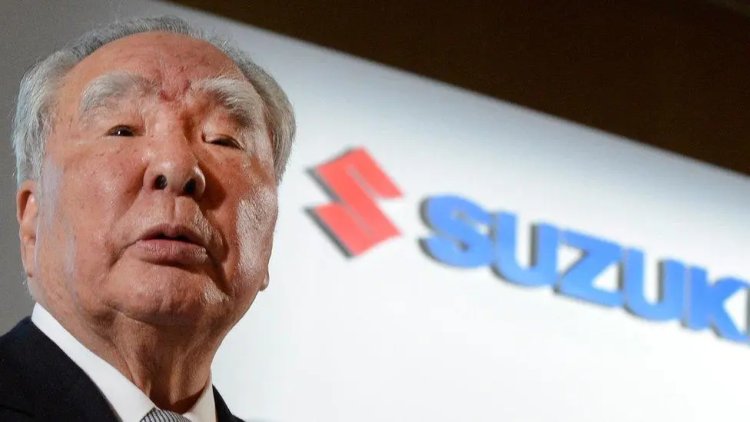Former Suzuki Chairman Osamu Suzuki Passes Away at 94
Osamu Suzuki, former Suzuki Motor Chairman and CEO, dies at 94 from lymphoma. His visionary work reshaped the global automotive landscape and mobility perceptions.

Osamu Suzuki, the former President, Chairman, and CEO of Suzuki Motor Corporation, has passed away at the age of 94. The company confirmed his death on Wednesday, revealing that he succumbed to lymphoma, a type of cancer that he had been battling. Suzuki was a visionary leader whose work revolutionized global perceptions of mobility and played a pivotal role in Suzuki’s success as one of the world’s leading automobile manufacturers.
Born in Japan in 1929, Osamu Suzuki joined Suzuki Motor in 1958 and eventually became the company’s President in 1978. Under his leadership, Suzuki expanded its presence internationally and became known for its compact vehicles and motorcycles. He served as Chairman and CEO until his retirement in 2008. His strategic vision helped shape Suzuki into a global brand, recognized for its innovative approach to producing affordable and practical vehicles for a wide range of consumers.
Throughout his tenure, Suzuki played a key role in establishing the company’s long-standing reputation in India. Suzuki's partnership with Maruti Udyog—which later became Maruti Suzuki—was instrumental in transforming the Indian automotive landscape. The Maruti Suzuki 800, launched in 1983, became an iconic vehicle, widely regarded as the car that changed India’s roads. Under Suzuki's leadership, Maruti Suzuki became the largest carmaker in India, where it still dominates the market today.
Deeply saddened by the passing of Mr. Osamu Suzuki, a legendary figure in the global automotive industry. His visionary work reshaped global perceptions of mobility. Under his leadership, Suzuki Motor Corporation became a global powerhouse, successfully navigating challenges,… pic.twitter.com/MjXmYaEOYA
— Narendra Modi (@narendramodi) December 27, 2024
Suzuki's contributions weren’t limited to expanding markets; he was also deeply committed to innovation in automotive technology. Under his guidance, Suzuki became a leader in creating small, fuel-efficient vehicles, earning a loyal customer base worldwide. His ability to blend technological advancements with consumer needs made Suzuki one of the most successful and admired companies in the automotive sector.
Following his retirement, Suzuki remained an influential figure in the automotive world, continuing to offer guidance to Suzuki Motor Corporation and its leadership team. His legacy also extends beyond the automotive industry, as he was known for his role in shaping Japan’s industrial future and global business practices.
Prime Minister Narendra Modi of India has paid tribute to Osamu Suzuki, calling him a visionary whose work had a profound impact on the automotive world. Modi praised Suzuki for reshaping the global perception of mobility and for the legacy he leaves behind through his leadership at Suzuki Motor Corporation.
Suzuki’s passing marks the end of an era for the company and the automotive industry, but his contributions will continue to influence the world of automobiles and mobility for generations to come.

 Deepanjali
Deepanjali 










